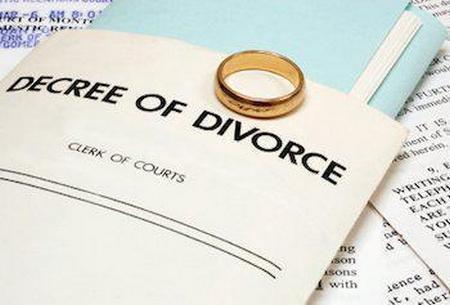Recent Blog Posts
Hurricane Sandy Affecting Marriages
 Hurricane Sandy touched many lives and destroyed a lot of homes in the United States, but some people say it will affect future marriages too. There have been studies on the effects of natural disasters on marriages and birthrates in the past, so could be possible to predict how Sandy affects these things by looking at past disasters. Slate reported a story about the situation and a possible future.
Hurricane Sandy touched many lives and destroyed a lot of homes in the United States, but some people say it will affect future marriages too. There have been studies on the effects of natural disasters on marriages and birthrates in the past, so could be possible to predict how Sandy affects these things by looking at past disasters. Slate reported a story about the situation and a possible future.
According to the story, when Hurricane Hugo hit South Carolina in 1989, declining marriage rates went up. Catherine Cohan and Steve Cole found that a year after the hurricane, the marriage rate was higher than past years, and a year after that it returned to declining rates like before the disaster. This is especially true for the areas that were hit hard.
Seven Kids Taken To Hospitals In Bus Crash
Warning: stripos(): Offset not contained in string in /home/ocvaws/public_html/system-joomla-shared-core/components/com_easyblog/easyblog.php on line 6
Red-Light Cameras Falling Out of Favor in Some Chicago Suburbs
Warning: stripos(): Offset not contained in string in /home/ocvaws/public_html/system-joomla-shared-core/components/com_easyblog/easyblog.php on line 6
Actor Dennis Quaid's Wife Looking to Divorce
 Kimberly Buffington-Quaid has filed for legal separation, and according to the Los Angeles Times, a divorce is on its way. The couple has been married for eight years and had already planned to divorce in March. The original divorce filing stated that “the marriage has become insupportable because of discord or conflict of personalities ... that destroys the legitimate ends of the marriage relationship and prevents any reasonable expectation of reconciliation.” However, earlier this year, the divorce proceedings were called off by Buffington-Quaid as the couple tried to fix their relationship.
Kimberly Buffington-Quaid has filed for legal separation, and according to the Los Angeles Times, a divorce is on its way. The couple has been married for eight years and had already planned to divorce in March. The original divorce filing stated that “the marriage has become insupportable because of discord or conflict of personalities ... that destroys the legitimate ends of the marriage relationship and prevents any reasonable expectation of reconciliation.” However, earlier this year, the divorce proceedings were called off by Buffington-Quaid as the couple tried to fix their relationship.
Kimberly, a former real estate agent, is Dennis Quaid’s third wife and they have two 4-year-old children together, a son and daughter. Kimberly is seeking sole physical custody of the kids, with joint legal custody and visitation for her soon to be ex-husband. Quaid also has other children from previous marriages.
Man Killed is Third Fatal Accident of Summer on Illinois Stretch of Route 126
Warning: stripos(): Offset not contained in string in /home/ocvaws/public_html/system-joomla-shared-core/components/com_easyblog/easyblog.php on line 6
Suspected Drunk Driver in Fatal Crash
Warning: stripos(): Offset not contained in string in /home/ocvaws/public_html/system-joomla-shared-core/components/com_easyblog/easyblog.php on line 6
Political Views and Marriage
 You often hear about a variety of things being the cause for marital problems or divorce, and what follows is another view on the matter. In the hottest hours of the presidential election, political views are on the surface among friends, coworkers, and especially family. A blogger touched the issue on a post in Huffington Post Divorce.
You often hear about a variety of things being the cause for marital problems or divorce, and what follows is another view on the matter. In the hottest hours of the presidential election, political views are on the surface among friends, coworkers, and especially family. A blogger touched the issue on a post in Huffington Post Divorce.
According to the blog, a Match.com poll found that 57 percent would marry a person whose political views differ considerably from theirs. Different views are clearly not stopping people from getting married, but they could be causing friction when people are already married.
Right now presidential candidates Romney and Obama are side by side, with only moments to the final showdown. Even if spouses' political views are not on the table most of the time, a situation like this can cause a lot of disputes. When the stakes run high, so do emotions, and this can lead to an argument with serious consequences.
Long Grove Man Killed in Multi-Car Accident
Warning: stripos(): Offset not contained in string in /home/ocvaws/public_html/system-joomla-shared-core/components/com_easyblog/easyblog.php on line 6
Take Care to Avoid Halloween Accidents
Warning: stripos(): Offset not contained in string in /home/ocvaws/public_html/system-joomla-shared-core/components/com_easyblog/easyblog.php on line 6
The Citing Grounds or Irreconcilable Differences in an Illinois Divorce Case
 Illinois law offers divorces in two ways: those where a specific reason is given (“grounds), and those where no reason is given (“irreconcilable differences”). Before filing for an Illinois divorce it is important to discuss with your attorney the best course of action for citing a reason, as giving a reason with grounds could present burden of proof issues that could affect the outcome of the divorce dependent on the intent of your ex-spouse.
Illinois law offers divorces in two ways: those where a specific reason is given (“grounds), and those where no reason is given (“irreconcilable differences”). Before filing for an Illinois divorce it is important to discuss with your attorney the best course of action for citing a reason, as giving a reason with grounds could present burden of proof issues that could affect the outcome of the divorce dependent on the intent of your ex-spouse.
In Illinois we use the term "irreconcilable differences" to describe what others know as a "no fault" divorce. No-fault divorce is a divorce in which the dissolution of a marriage does not require a showing of wrongdoing by either party. Laws providing for no-fault divorce allow a family court or other court to grant a divorce in response to a petition by either party to the marriage, without requiring the petitioner to provide evidence that the respondent has committed a breach of the marital contract.
 English,
English,
 Spanish,
Spanish,
 Polish,
Polish,
 Urdu
Urdu













 Make a Payment
Make a Payment



